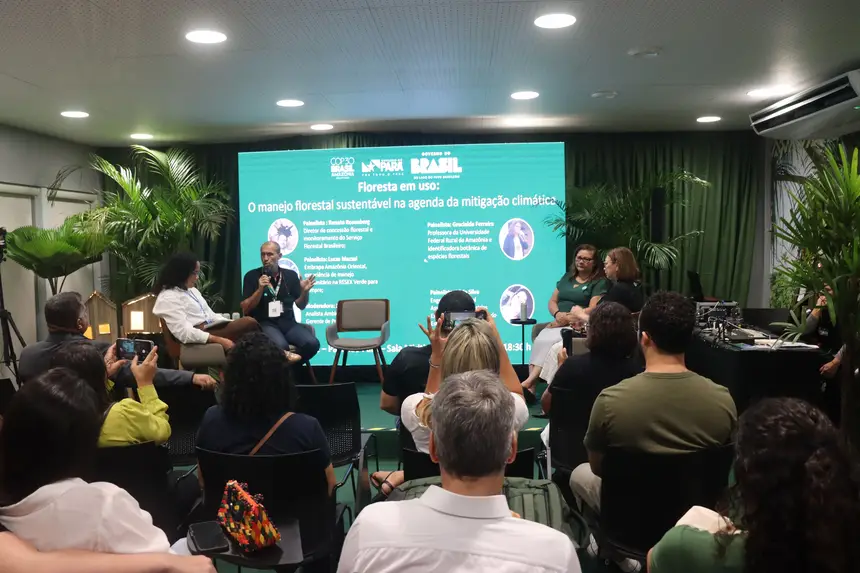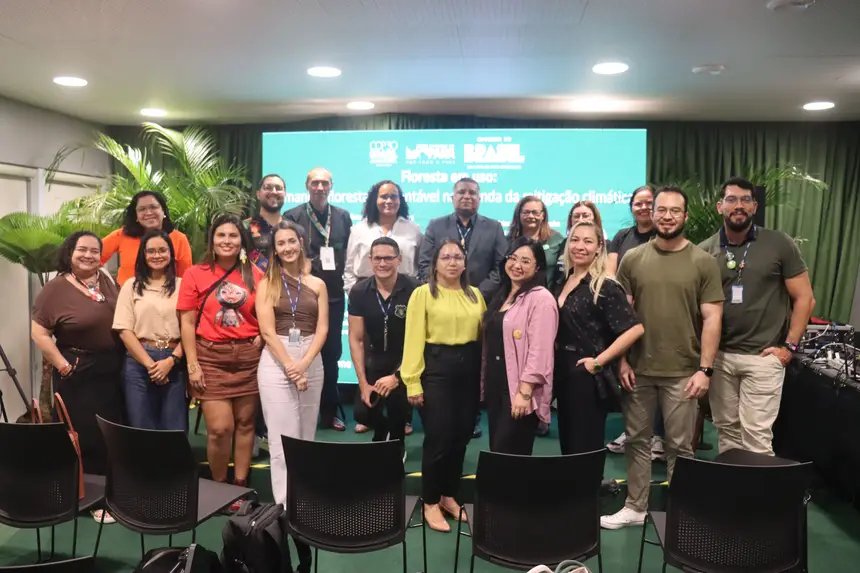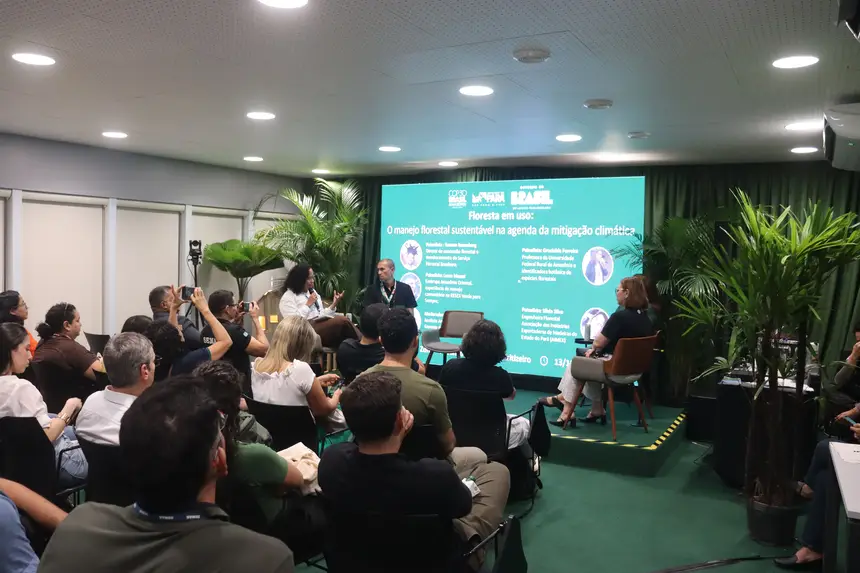Sustainable Management enters the climate mitigation agenda
According to experts, responsible management drives the economy, generates jobs, and keeps the forest alive, with permanent value
Sustainable forest management was at the center of the debate in the Miritizeiro Room, at the Pará Pavilion, during the COP30 programming on Thursday (13). The panel "Forest in use: sustainable forest management in the climate mitigation agenda" brought together experts who work directly in research, use, and management of the Amazon rainforest. The mediation was conducted by Jessica Cabral, a civil servant from the State Secretariat for Environment, Climate and Sustainability (Semas).
Participating in the program were Silvia Silva, a forest engineer from Aimex (Association of Exporting Wood Industries of the State of Pará); Gracialda Ferreira, a professor at the Federal Rural University of the Amazon (Ufra) and a specialist in Botanical Identification, and Lucas Mazzei, a researcher from the Brazilian Agricultural Research Corporation (Embrapa Eastern Amazon), a reference in community management in the region of the Verde Para Sempre Extractive Reserve.

Standing forest - The productive sector has made significant advances in the sustainable use of the forest — especially through traceability and control instruments that ensure legal origin and transparency. Traceability begins even in the forest inventory, when each tree is identified, numbered, and georeferenced. From this mapping, it is possible to track the entire journey of the wood: who cut down the tree, when it became a log, when it was dragged, transported, and finally processed at the sawmill.
According to Silvia Silva, strict control strengthens trust in Amazonian products and enhances competitiveness. She emphasized that the combination of traceability and forest certification, although voluntary, adds value to management by requiring social, ecological, and economic criteria. "When management is done responsibly, it drives the economy, generates jobs, and keeps the forest alive, precisely because it begins to have permanent value," she stated.
Concluding the panel, the experts agreed that sustainable forest management is one of the most consistent strategies to connect development, conservation, and climate mitigation in the Amazon. The model keeps trees standing, ensures regeneration with legal cycles of 25 to 35 years, increases carbon capture, and strengthens sustainable production chains, always based on science, community participation, and the qualification of public policies.

Technology, science, and ecological risk - Professor Gracialda Ferreira addressed challenges, risks, and connections between technology, science, and ecological threats. "It is evident how technological development has advanced. But we need to bring this advancement into forest management. The productive sector needs to understand the importance of internalizing these technologies to ensure sustainability. Just as management is the technology that gives us security in conservation, it is also true that small chronic problems, such as deficient botanical identification, can put groups of species at risk. These are difficult issues, yes, but inevitable to be faced and discussed," highlighted Gracialda Ferreira.
The debate reaffirmed that the forest, when managed with criteria, botanical knowledge, and technology, continues to be a protagonist in generating income and in the global response to climate change.
Text: Lucas Maciel - Ascom/Semas










